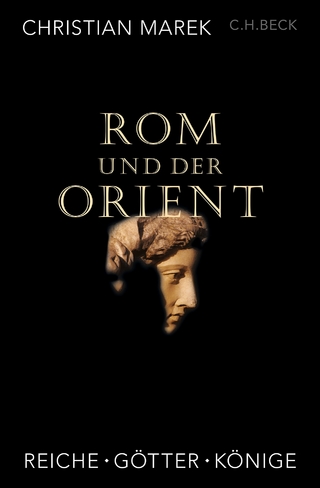
Praise and Blame in Greek Tragedy
Seiten
2024
Bloomsbury Academic (Verlag)
978-1-350-41049-7 (ISBN)
Bloomsbury Academic (Verlag)
978-1-350-41049-7 (ISBN)
Exploring the use of praise and blame in Greek tragedy in relation to heroic identity, Kate Cook demonstrates that the distribution of praise and blame, a significant social function of archaic and classical poetry, also plays a key role in Greek tragedy. Both concepts are a central part of the discourse surrounding the identity of male heroic figures in tragedy, and thus are essential for understanding a range of tragedies in their literary and social contexts. In the tragic genre, the destructive or dangerous aspects of the process of kleos (glory) are explored, and the distribution of praise and blame becomes a way of destabilising identity and conflict between individuals in democratic Athens.
The first half of this book shows the kinds of conflicts generated by ‘heroes’ who seek after one kind of praise in tragedy, but face other characters or choruses who refuse to grant the praise discourses they desire. The second half examines what happens when female speakers engage in the production of these discourses, particularly the wives and mothers of heroic figures, who often refuse to contribute to the production of praise and positive kleos for these men. Praise and Blame in Greek Tragedy therefore demonstrates how a focus on this poetically significant topic can generate new readings of well-known tragedies, and develops a new approach to both male heroic identity and women’s speech in tragedy.
The first half of this book shows the kinds of conflicts generated by ‘heroes’ who seek after one kind of praise in tragedy, but face other characters or choruses who refuse to grant the praise discourses they desire. The second half examines what happens when female speakers engage in the production of these discourses, particularly the wives and mothers of heroic figures, who often refuse to contribute to the production of praise and positive kleos for these men. Praise and Blame in Greek Tragedy therefore demonstrates how a focus on this poetically significant topic can generate new readings of well-known tragedies, and develops a new approach to both male heroic identity and women’s speech in tragedy.
Kate Cook is Associate Lecturer in Classics at the University of St Andrews, UK.
Introduction
Chapter One: Praise and the Construction of a Hero: Neoptolemus in the Philoctetes
Chapter Two: The Best of the Rest: Ajax Thwarted.
Chapter Three: Euripides' Heracles – ‘Glorious’ how?
Chapter Four: Euripides’ Suppliants and the Female Subversion of Praise
Chapter Five: Unpraised and Unpraiseworthy: Deianira and the Doubled Destruction of Heracles in Sophocles’ Trachiniae.
Chapter Six: Medea and the Mastery of Blame
Conclusion
Notes
Bibliography
Index
| Erscheinungsdatum | 23.01.2024 |
|---|---|
| Verlagsort | London |
| Sprache | englisch |
| Maße | 156 x 234 mm |
| Themenwelt | Literatur ► Klassiker / Moderne Klassiker |
| Geschichte ► Allgemeine Geschichte ► Altertum / Antike | |
| Geisteswissenschaften ► Religion / Theologie ► Weitere Religionen | |
| Geisteswissenschaften ► Sprach- / Literaturwissenschaft ► Anglistik / Amerikanistik | |
| Geisteswissenschaften ► Sprach- / Literaturwissenschaft ► Literaturwissenschaft | |
| Sozialwissenschaften ► Soziologie | |
| ISBN-10 | 1-350-41049-7 / 1350410497 |
| ISBN-13 | 978-1-350-41049-7 / 9781350410497 |
| Zustand | Neuware |
| Informationen gemäß Produktsicherheitsverordnung (GPSR) | |
| Haben Sie eine Frage zum Produkt? |
Mehr entdecken
aus dem Bereich
aus dem Bereich


